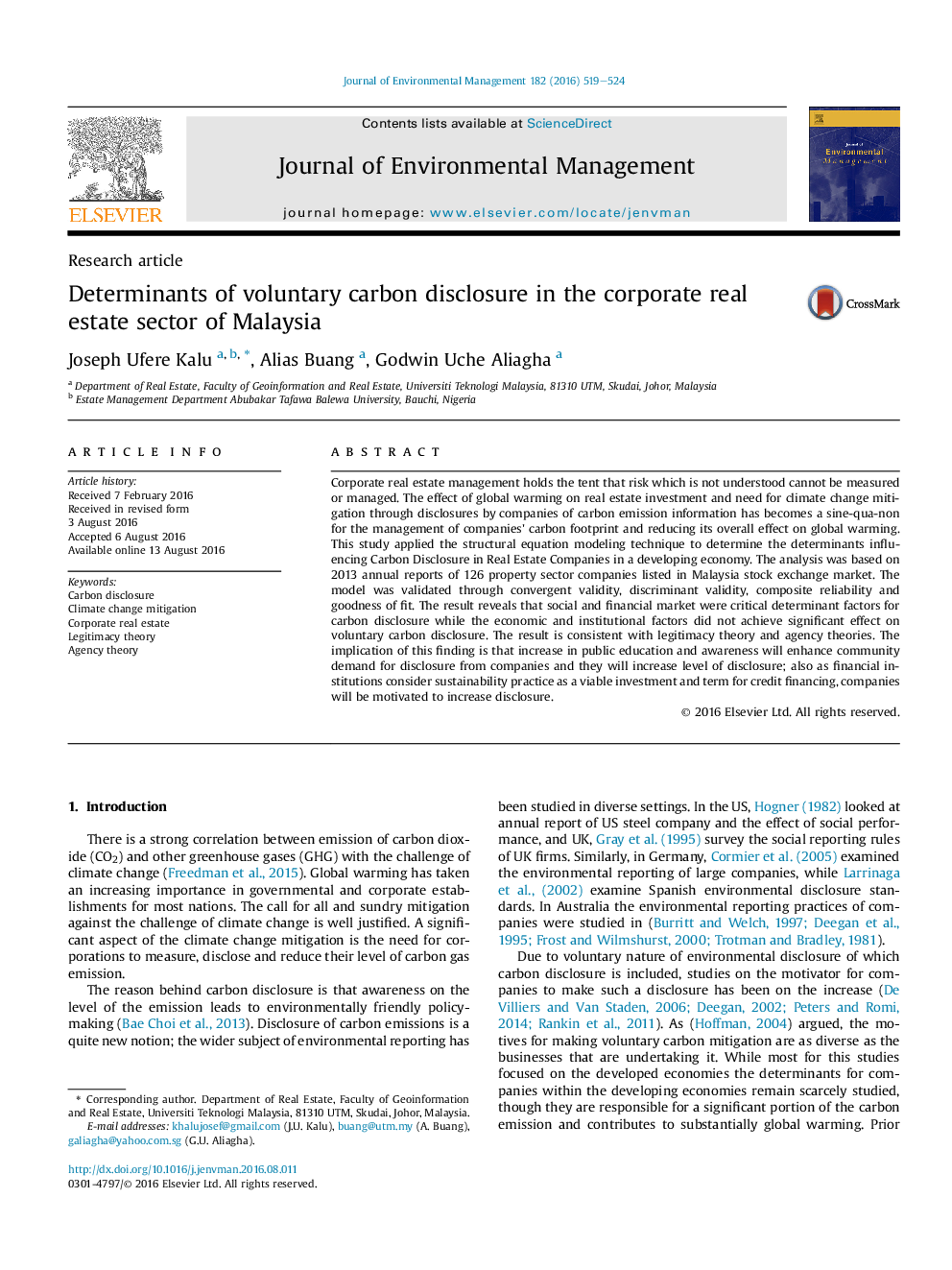| Article ID | Journal | Published Year | Pages | File Type |
|---|---|---|---|---|
| 7479229 | Journal of Environmental Management | 2016 | 6 Pages |
Abstract
Corporate real estate management holds the tent that risk which is not understood cannot be measured or managed. The effect of global warming on real estate investment and need for climate change mitigation through disclosures by companies of carbon emission information has becomes a sine-qua-non for the management of companies' carbon footprint and reducing its overall effect on global warming. This study applied the structural equation modeling technique to determine the determinants influencing Carbon Disclosure in Real Estate Companies in a developing economy. The analysis was based on 2013 annual reports of 126 property sector companies listed in Malaysia stock exchange market. The model was validated through convergent validity, discriminant validity, composite reliability and goodness of fit. The result reveals that social and financial market were critical determinant factors for carbon disclosure while the economic and institutional factors did not achieve significant effect on voluntary carbon disclosure. The result is consistent with legitimacy theory and agency theories. The implication of this finding is that increase in public education and awareness will enhance community demand for disclosure from companies and they will increase level of disclosure; also as financial institutions consider sustainability practice as a viable investment and term for credit financing, companies will be motivated to increase disclosure.
Related Topics
Physical Sciences and Engineering
Energy
Renewable Energy, Sustainability and the Environment
Authors
Joseph Ufere Kalu, Alias Buang, Godwin Uche Aliagha,
